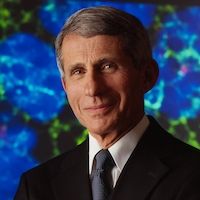Article
NIAID Director Recounts Lessons from Infectious Disease Outbreaks
Author(s):
NIAID director Anthony Fauci, MD shares lessons learned from confronting infectious disease outbreaks during a tenure spanning 5 presidential administrations.

Anthony Fauci, MD
Anthony Fauci, MD, Director of the National Institute of Allergy and Infectious Diseases (NIAID) since 1984, recently shared lessons learned from his tenure confronting emerging infectious disease threats through the span of 5 presidential administrations.
His presentation to the Internal Medicine Meeting in San Diego, CA in March is the basis of a recent publication co-authored with colleagues, which occasioned this discussion with MD Magazine.
Fauci and colleagues indicate that each administration has been confronted with the need to manage ongoing or established infectious diseases as well as new and reemerging threats, and that their approaches and the resulting outcomes have served to shape and refine subsequent NIAID research and public health responses.
"In each of those, we were met with challenges of unanticipated outbreaks," Fauci told MD Magazine. "There were different types. Some were the insidious ones like HIV-AIDS, which we as a government didn't recognize to be as serious as it was until it really was clearly out of control."
Fauci also noted new outbreaks at the time — such as Middle East Respiratory Syndrome (MERS), severe acute respiratory syndrome (SARS), and West Nile Virus. He recounted “the great scare” of Ebola, and the unforeseen implications of the mosquito-borne Zika virus.
In one example that emerged in April 2009, the H1N1 influenza pandemic became the first pandemic of the 21st century.
"Because seasonal influenza vaccines offered little or no protection against this newly emerged virus, Congress acted quickly to give the Department of Health and Human Services significant additional resources in anticipation of a second phase of the out-break in the fall and winter of 2009," Fauci and colleagues wrote in the publication. "Vaccine development was deemed to be the highest priority, and in early August 2009, as soon as an experimental vaccine was available, NIAID began enrolling volunteers into a clinical trial conducted by its Vaccine and Treatment Evaluation Units network."
This effort did not produce vaccine supplies, however, until the late fall and early winter, after the outbreak had peaked.
"This experience served as a striking reminder of the inadequacy of our pandemic preparedness capabilities and underscored the need, now being actively pursued, to develop platform technologies that can be applied rapidly to develop vaccines for evolving outbreaks," Fauci and colleagues wrote.
Fauci anticipates that the current administration will also face such challenges, and said it is critical that they are ready to apply the lessons learned from past experiences in order to fashion optimal responses.
"At the end of the day, there are certain principles that you have to appreciate are critical to be able to either detect, and/or respond properly to an unexpected outbreak," Fauci said. "One of them is you need surveillance, you need communication and collaboration. You need transparency in what you say, and immediate honesty in putting forth the facts.”
Fauci also emphasized the importance of building and maintaining infrastructure domestically and internationally to have capacity for outbreak responses.
"You need to remember that, as in cases like in West Africa, the lack of a healthcare infrastructure was critical to the fact that they had a massive outbreak," Fauci said.
The article on Fauci's presentation, "What Recent History Has Taught Us About Responding to Emerging Infectious Disease Threats," was published online in the Annals of Internal Medicine this month.
Related Coverage
SIGA Technologies Submits NDA for Smallpox Therapy Tecovirimat (TPOXX)
Majority of College Students Don't Get Flu Vaccine
FDA Approves Molecular Test for Valley Fever





